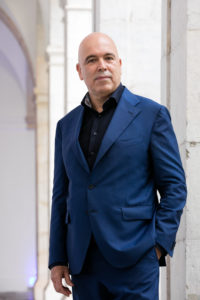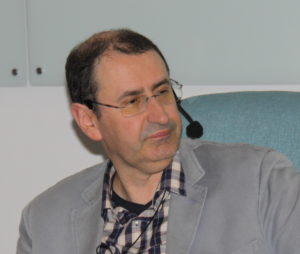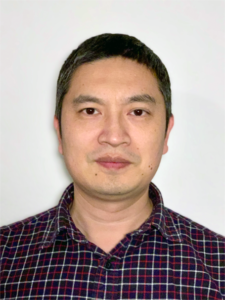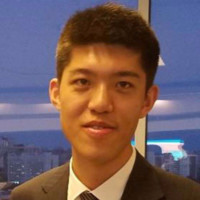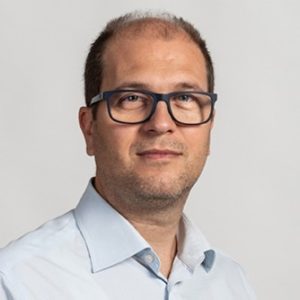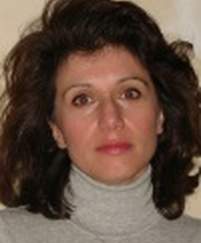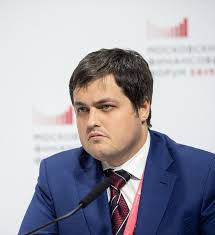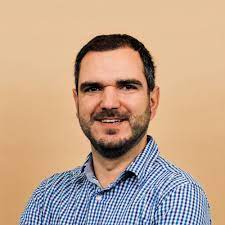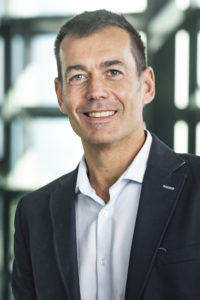Wednesday, November 30
Wednesday, November 30 16:00 – 16:15
Opening of IEEE Standards Summit 2022
K4: Keynote Speech Konstantinos -Karachalios, Managing Director of the IEEE Standards Association (IEEE SA)
Abstract: Wireless and Connectivity is the technology framework of the 21st century – the essential tech of the present and accelerated tech of the future to move our global community forward. Connectivity is the fabric for the next phase of digital transformation connecting virtually everything and thus unlocking new business opportunities and use cases. IEEE Standards Association (IEEE SA) Managing Director Dr.Ing Karachalios will speak about how IEEE SA is helping in the digital transformation revolution through its various programs and initiatives and how IEEE SA is addressing the opportunities and challenges of the future that lay ahead.
Bio: Konstantinos Karachalios, a globally recognized leader in standards development and intellectual property, is managing director of the IEEE Standards Association and a member of the IEEE Management Council. As managing director, he has been enhancing IEEE efforts in global standards development in strategic emerging technology fields, through technical excellence of staff, expansion of global presence and activities and emphasis on inclusiveness and good governance, including reform of the IEEE standards-related patent policy. As member of the IEEE Management Council, he championed expansion of IEEE influence in key techno-political areas, including consideration of social and ethical implications of technology, according to the IEEE mission to advance technology for humanity. Results have been rapid in coming and profound; IEEE is becoming the place to go for debating and building consensus on issues such as a trustworthy and inclusive Internet, in particular regarding age-appropriate design of internet platforms, and ethics in design of autonomous systems.
Before IEEE, Konstantinos played a crucial role in successful French-German cooperation in coordinated research and scenario simulation for large-scale nuclear reactor accidents. And with the European Patent Office, his experience included establishing EPO’s patent academy, the department for delivering technical assistance for developing countries and the public policy department, serving as an envoy to multiple U.N. organizations. Konstantinos earned a Ph.D. in energy engineering (nuclear reactor safety) and masters in mechanical engineering from the University of Stuttgart.
Panel 5: “What will be the scope of the future 6G standards?”
Wednesday, November 30, 5:00 PM – 6:15 PM Athens time
Moderator:
- Rui L. Aguiar (University of Aveiro, Portugal)
Rui L. Aguiar (born 1967) is a Full Professor at University of Aveiro. He is also a Research Associate at Jesus College, University of Cambridge. He is currently coordinating a research line in Instituto de Telecomunicacoes, on the area of Networks and Services. He has been serving as Steering Board Chair of Networld Europe, the European ETP representing the telecommunications community, engaged in the discussions of the future European R&D workprogrames for telecommunications. He has been previously been associated with Carnegie Mellon University, the Universidade de Uberlandia, and has been an advisory for the portuguese Secretaria de Estado das Comunicacoes and member of the task force for 5G cybersecurity. He is a Chartered Engineer, a Senior Member of IEEE, and a member of ACM. He is a regular keynote speaker in the future of mobile communications and digital society, with dozens of talks across the whole world. He is an associated editor of Wiley’s Emerging Telecommunication Technologies and Springers’ Wireless Networks. He has more than 500 papers published.
Panelists:
- Richard Li (Futurewei Technologies Inc., USA)
Title: What is needed from network layers by 6G applications?
Dr. Richard Li is Chief Scientist and Vice President of Network Technologies at Futurewei, USA. Richard served as the Chairman of the ITU-T FG Network 2030 from 2018 to 2020, and as the Vice Chairman of the Europe ETSI ISG NGP (Next-Generation Protocols) from 2016 to 2019. He has also served as Co-Chairs of steering committees and technical program committees of some academic and industrial conferences. Richard is extremely passionate about advancing ICT infrastructure technologies and solving problems in their entirety, thus creating a bigger and long-term impact on the networking industry. During his career, Richard spearheaded network technology innovation and development in Routing and MPLS, Mobile Backhaul, Metro and Core Networks, Data Center, Cloud and Virtualization. Currently he leads a team of scientists and engineers to develop technologies for next-generation network architectures, protocols, algorithms, and systems in the support of emerging and forward-looking applications and industry verticals in the context of New IP, Network 2030, and 5G/B5G/6G.
- Ashutosh Dutta (Johns Hopkins University and IEEE Future Networks Initiative, USA)
Title: Future Networks: The INGR Vision and the Path to 6G
As a Technical Leader in 5G and security, IEEE Fellow Ashutosh Dutta has been serving as the founding Co-Chair for the IEEE Future Networks Initiative that focuses on 5G standardization, education, publications, testbed, and roadmap activities. Ashutosh currently works as Chief 5G Strategist and Fellow at Johns Hopkins University Applied Physics Labs and Chair of Electrical and Computer Engineering for Engineering Professional Program at JHU. Earlier Ashutosh worked as Director of Technology Security at AT&T, CTO for NIKSUN, Senior Scientist in Telcordia Research, Director of Central Research Facility at Columbia University and Computer Engineer at TATA Motors. Ashutosh is the author of more than 100 technical papers and 31 issued patents. Ashutosh is co-author of the book, titled, “Mobility Protocols and Handover Optimization: Design, Evaluation and Application” published by Wiley-IEEE press. Ashutosh currently serves as the founding co-chair for IEEE Future Networks Initiative and Member-At-Large for IEEE Communications Society, where was a Distinguished Lecturer for 2017-2020. He co-founded the IEEE STEM conference (ISEC) and helped to implement EPICS (Engineering Projects in Community Service) projects in several high schools. Ashutosh has served as the general Co-Chair for the IEEE STEM conference for the last 10 years, as well as the Director of Industry Outreach for IEEE Communications Society from 2014-2019. He has served as the general Co-Chair for the premier IEEE 5G World Forums and has organized 85 5G World Summits around the world. Ashutosh currently serves as the Chair for IEEE Industry Connection’s O-RAN activities. Ashutosh is a Distinguished Alumnus of NIT Rourkela with BS in Electrical Engineering, MS in Computer Science from NJIT, and Ph.D. in Electrical Engineering from Columbia University under the supervision of Prof. Henning Schulzrinne.
- Tao Chen (VTT Finland)
Title: 6G Research in O-RAN Alliance
Dr. Tao Chen is a principal scientist at VTT Finland and the co-chair of the next generation research group (nGRG) in O-RAN Alliance. In VTT, he used to lead a team that develops AI/ML applications, data analytics, and data-driven solutions for a variety of industry sectors, including telecommunications, satellite remote sensing, automated driving, and mining. He has over two decades of experience in the communication sector and extensive experience leading significant research and development projects in Europe. Back to 2015, Dr. Chen’s EU COHERENT project was the first to propose the RAN intelligent controller concept within a software defined RAN. He is a Royal Academy of Engineering visiting professor at University of Kent, UK, and associated professor (Docent) at University of Jyvaskyla, Finland.
- Ruiqi Liu (ZTE, China)
Ruiqi (Richie) Liu received the B.S. and M.S. degree (with honors) in electronic engineering from the Department of Electronic Engineering, Tsinghua University in 2016 and 2019 respectively. He is now a master researcher in the wireless research institute of ZTE Corporation, responsible for long-term research as well as standardization. His research interests include reconfigurable intelligent surfaces, wireless positioning, quantum communication and visible light communication. He is the author or co-author of several books and book chapters. During his 3-year service at 3GPP from 2019 to 2022, he has authored and submitted more than 500 technical documents with over 100 of them approved, and he served as the co-rapporteur of the work item (WI) on NR RRM enhancement and the feature lead of multiple features. He currently serves as the Vice Chair of ISG RIS in the ETSI. He actively participates in organizing committees, technical sessions, workshops, symposia and industry panels in IEEE conferences as the chair, organizer, moderator, panelist or invited speaker. He served as the lead guest editor for the special issue on 6G in IEEE OJCOMS. He serves as the Editor of ITU Journal of Future and Evolving Technologies (ITU J-FET) and the Associate Editor of IET Quantum Communication. He is the Standardization Officer for IEEE ComSoc ETI on reconfigurable intelligent surfaces (ETI-RIS) and the Standards Liaison Officer for IEEE ComSoc Signal Processing and Computing for Communications Technical Committee (SPCC-TC). He received the Outstanding Service Award from the SPCC-TC in 2022 and 2 best workshop awards as the chair.
Wednesday, November 30 18:15 – 19:00
K5: Keynote Speech – Dario Sabella, Intel
Dario Sabella, Senior Manager Standards and Research, Intel and Chairman ETSI ISG MEC
Abstract: The talk will provide an overview of ETSI MEC activities, in alignment with other standard bodies and industry associations, also for the evolution toward future systems. The MEC standardization will be discussed in perspective, as natural result of the industry need for standards when addressing interoperability in complex and heterogeneous environments, together with the complementary and growing role of open source (e.g. LF Edge) and other communities (e.g. 5GAA). In this perspective, a particular emphasis will be given to edge application developers engagement activities in MEC.
Bio: Dario Sabella works with Intel as Senior Manager Standards and Research, driving new technologies and edge cloud innovation for advanced systems, involved in ecosystem engagement and coordinating internal alignment on edge computing across standards and industry groups. In February 2021 has been elected as Chairman of ETSI MEC (Multi-access Edge Computing), while from 2019 he was serving as vice-chairman, previously Lead of Industry Groups, and from 2015 vice-chair of IEG WG. Since 2017 he is also delegate of 5GAA (5G Automotive Association) and Lead of gMEC4AUTO in 5GAA. Before 2017 he worked in TIM (Telecom Italia group), as responsible in various research, experimental and operational activities on OFDMA technologies (WiMAX, LTE, 5G). He is Innovation Manager at 6G Flagship EU project Hexa-X. Author of several publications (40+) and patents (30+) in the field of wireless communications, energy efficiency and edge computing, Dario is IEEE senior member and has also organized several international workshops and conferences.
Wednesday, November 30 19:00 – 20:00
Special Session – Standardization Activities of Research Projects
Angeliki Alexiou (University of Piraeus, Greece)
Title: Recent standardization developments in major 6G enablers
Bio: Angeliki Alexiou is a professor of Broadband Communications Systems at the department of Digital Systems, ICT School, University of Piraeus, Greece. She received the Diploma in Electrical and Computer Engineering from the National Technical University of Athens in 1994 and the PhD in Electrical Engineering from Imperial College of Science, Technology and Medicine, University of London in 2000. Since May 2009 she has been a faculty member at the Department of Digital Systems, where she conducts research and teaches undergraduate and postgraduate courses in Broadband Communications and Advanced Wireless Technologies. Prior to this appointment she was with Bell Laboratories, Wireless Research, Lucent Technologies, (later Alcatel-Lucent, now NOKIA), in Swindon, UK, (January 1999-April 2009). Professor Alexiou is a co-recipient of Bell Labs President’s Gold Award in 2002 for contributions to Bell Labs Layered Space-Time (BLAST) project and the Central Bell Labs Teamwork Award in 2004 for role model teamwork and technical achievements in the IST FITNESS project. Professor Alexiou is the Chair of the Working Group on Radio Communication Technologies and of the Working Group on High Frequencies Radio Technologies of the Wireless World Research Forum. Her current research interests include radio interface for 6G systems, MIMO, THz wireless communication technologies, Reconfigurable Intelligent Surfaces, cooperation and coordination for Ultra Dense wireless networks, ‘cell-less’ architectures and machine learning for wireless systems. She is the project coordinator of the H2020 TERRANOVA project (ict-terranova.eu) and the technical manager of H2020 ARIADNE project (ict-ariadne.eu).
Evgeny Khorov (Institute for Information Transmission Problems RAS, Russia)
Title: Boosting Wi-Fi Performance Within the IEEE 802.11 Standard and Beyond
Bio: Evgeny Khorov is the Head of the Wireless Networks Laboratory and Deputy Director of the Institute for Information Transmission Problems of the Russian Academy of Sciences. Also, he is Associate Professor at MIPT, NRU HSE and MSU. His main research interests are related to 5G/6G systems, next-generation Wi-Fi, Wireless Internet of Things, and QoS-aware optimization. He has led dozens of academic and industrial projects. Being a voting member of IEEE 802.11, he contributed to the Wi-Fi 6 standard. He has authored over 160 papers, which received several Best Paper Awards. Also, he was awarded national and international prizes in science and technology. Evgeny Khorov gives tutorials and participates in panels at large IEEE events. He chaired TPC of various IEEE and IETF conferences and workshops. In 2020, he was awarded as the Editor of the year of Ad Hoc Networkst.
Kostas Katsaros (Digital Catapult, UK)
Title: 5G-VICTORI – Vertical demos over common large scale field trials for rail, energy and media industries
Bio: Kostas Katsaros has 10+ years of experience in wireless communications across industrial and academic environments. At Digital Catapul, Kostas provides oversight and guidance for specific 5G system architecture and subsystem implementations for R&D and commercial projects. Specializing in new architectures that use virtualization and edge computing across different industrial sectors. Kostas has led research into the use of mobile edge computing to assist video encoding (5G-Festival and VISTA
projects) and autonomous driving. interested in how these networks are used to improve society and the novel business opportunities that arise from them. Kostas has participated in several European and national projects and has co-authored more than 20 peer-reviewed technical articles and conference papers. He also holds two patents on hybrid vehicular networking architectures. He holds a MSc and PhD in Electronic Engineering from University of Surrey.
Emilio Calvanese Strinati (CEA Leti, Grenoble, France)
Title: 6G Semantic Communications: The Role of Expressive Languages
Bio: Dr. Emilio Calvanese Strinati obtained his Engineering Master degree in 2001 from the University of Rome ‘La Sapienza’ and his Ph.D in Engineering Science in 2005 from Paris Telecom. He then started working at Motorola Labs in Paris in 2002. Then in 2006 he joint CEA LETI as a research engineer. From 2007, he becomes a PhD supervisor. From 2010 to 2012, he has been the co-chair of the wireless working group in GreenTouch Initiative, which deals with design of future energy efficient communication networks. From 2011 to 2016 he was the Smart Devices & Telecommunications strategic programs Director, then, until January 2020 he was the Smart Devices & Telecommunications Scientific and Innovation Director. Since February 2020 he is the Nanotechnologies and Wireless for 6G (New-6G) Program Director focusing on future 6G technologies. He has published around 200 papers in journals, international conferences, and books chapters, and he has given more than 200 international invited talks, keynotes and tutorials. He is the main inventor of more than 75 patents. His current research interests are on Reconfigurable Intelligent Surfaces, Semantic communications, Goal-oriented communications AI-native technologies in the contest of 6G.



